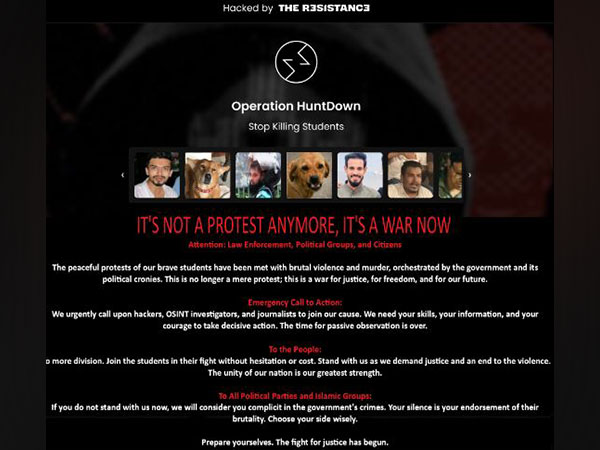Bangladesh Faces Cyber Attacks Amid Student Protests
The official websites of major Bangladeshi institutions were hacked by 'THE R3SISTANC3' amid escalating student protests over the country's quota system. The group called for international intervention and condemned government violence. Protests, sparked by opposition to the quota system, have resulted in over 100 deaths.

- Country:
- Bangladesh
The official websites of Bangladesh's Prime Minister's Office, Central Bank, and police have been hacked by a group calling itself 'THE R3SISTANC3' amid ongoing unrest in the country.
Identical messages appeared on all three sites condemning the government's response to student protests, declaring, 'Operation HuntDown, Stop Killing Students,' and labeling the situation a 'war' in red font. The hackers criticized the violent suppression of 'peaceful protests' and called for hackers, OSINT investigators, and journalists to join their cause.
Another message warned, 'Prepare yourselves. The fight for justice has begun.' The crisis began with student protests against a quota system that allocated 30% of government jobs to descendants of veterans. Critics claimed it favored the ruling Awami League. Following significant unrest and over 100 casualties, the Supreme Court reduced the quota to 5%.
The situation escalated into confrontations between protesters and alleged supporters of the Awami League, leading to accusations of police brutality. Despite the government's attempt to abolish the quota in 2018 and the High Court's reinstatement last month, protests have resumed.
The government imposed a curfew, deployed military forces, and initiated a communication blackout. Prime Minister Sheikh Hasina defended the quota system, citing veterans' contributions while critics viewed the government's actions as exacerbating public anger.
The 'information blackout' and heavy-handed response increased calls for political reforms, with some protesters demanding Hasina's resignation. Political analysts frame the protests as a crucial moment for Bangladesh's legitimacy, though opinions vary on the outcomes.
The recent court decision to reduce the quota was cautiously welcomed by some demonstrators, but the broader implications remain uncertain amid ongoing restrictions. The government declared public holidays and restricted non-essential services to manage the crisis.
(With inputs from agencies.)










